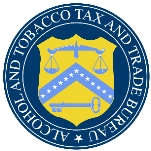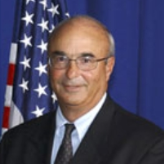The Bureau of Internal Revenue became the Internal Revenue Service (IRS) in 1953. ATU was renamed as the Alcohol and Tobacco Tax Division, and this lasted until passage of the
Gun Control Act of 1968. This new legislation gave ATU responsibility over explosives, as well as other materials. In July 1972, Treasury Department Order No. 120-1 transferred from the IRS any powers and functions related to alcohol, firearms and explosives to a new Treasury Department agency called the Bureau of Alcohol, Tobacco and Firearms (ATF). Taxation and regulatory functions remained part of ATF until January 2003 when these functions were transferred to the newly-created Alcohol and Tobacco Tax and Trade Bureau.
|
Unisys Corporation
|
$66,224,000
|
|
Group Walsh (WAI) Inc.
|
$49,861,000
|
|
Milvets Systems Technology, Inc.
|
$33,299,000
|
|
Paradigm Holdings, Inc.
|
$21,223,391
|
|
Wyle Information Systems, LLC
|
$16,119,661
|
|
Government of the United States
|
$12,602,062
|
|
Motorola, Inc.
|
$12,440,000
|
|
Nortel Networks Corporation
|
$11,594,752
|
|
Groupe CGI Inc.
|
$11,568,002
|
|
Universal Systems and Technology, Inc.
|
$8,261,000
|
, the agency’s largest contractor, is a company specializing in data storage and protection. In recent years, their work has expanded to include communication technologies, financial services and transportation. Curiously, TTB’s sixth largest contractor is the US government. The Federal Prison Industries, Inc., aka
Unicor, employs and provides job skills training to inmates confined within the Federal Bureau of Prisons, among other activities.
- Table of Contents
- Overview
- History
- What it Does
- Where Does the Money Go
- Controversies
- Suggested Reforms
- Comments
- Leave a comment


- Latest News
- D.C. Public Schools will Teach all Second-Graders to Ride a Bike
- New Rule in Germany Limits Sales of Sex-Themed E-Books to 10pm to 6am
- What Happened to the 6-Year-Old Tibetan Boy the Chinese Government Kidnapped 20 Years Ago?
- U.S. Ambassador to Turkey Photoshops his Hair Color to Mock Turkish Mayor
- Mystery Artist Calls Attention to Unfixed Potholes by Drawing Penises around Them
The Bureau of Internal Revenue became the Internal Revenue Service (IRS) in 1953. ATU was renamed as the Alcohol and Tobacco Tax Division, and this lasted until passage of the
Gun Control Act of 1968. This new legislation gave ATU responsibility over explosives, as well as other materials. In July 1972, Treasury Department Order No. 120-1 transferred from the IRS any powers and functions related to alcohol, firearms and explosives to a new Treasury Department agency called the Bureau of Alcohol, Tobacco and Firearms (ATF). Taxation and regulatory functions remained part of ATF until January 2003 when these functions were transferred to the newly-created Alcohol and Tobacco Tax and Trade Bureau.
|
Unisys Corporation
|
$66,224,000
|
|
Group Walsh (WAI) Inc.
|
$49,861,000
|
|
Milvets Systems Technology, Inc.
|
$33,299,000
|
|
Paradigm Holdings, Inc.
|
$21,223,391
|
|
Wyle Information Systems, LLC
|
$16,119,661
|
|
Government of the United States
|
$12,602,062
|
|
Motorola, Inc.
|
$12,440,000
|
|
Nortel Networks Corporation
|
$11,594,752
|
|
Groupe CGI Inc.
|
$11,568,002
|
|
Universal Systems and Technology, Inc.
|
$8,261,000
|
, the agency’s largest contractor, is a company specializing in data storage and protection. In recent years, their work has expanded to include communication technologies, financial services and transportation. Curiously, TTB’s sixth largest contractor is the US government. The Federal Prison Industries, Inc., aka
Unicor, employs and provides job skills training to inmates confined within the Federal Bureau of Prisons, among other activities.
Comments


- Latest News
- D.C. Public Schools will Teach all Second-Graders to Ride a Bike
- New Rule in Germany Limits Sales of Sex-Themed E-Books to 10pm to 6am
- What Happened to the 6-Year-Old Tibetan Boy the Chinese Government Kidnapped 20 Years Ago?
- U.S. Ambassador to Turkey Photoshops his Hair Color to Mock Turkish Mayor
- Mystery Artist Calls Attention to Unfixed Potholes by Drawing Penises around Them





Comments